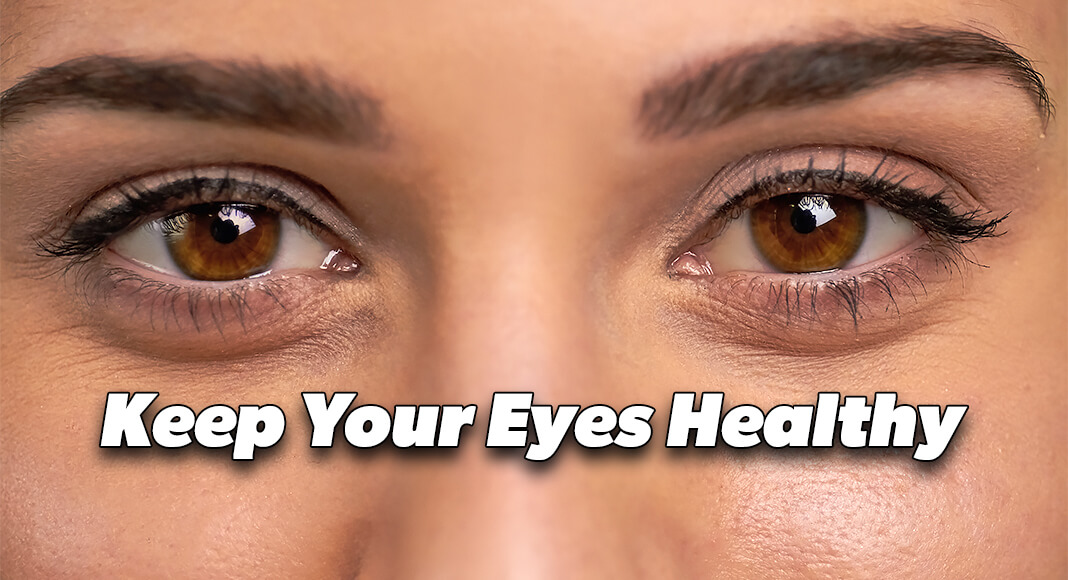
Texas Border Business
There’s a lot you can do to keep your eyes healthy and protect your vision.
Get a comprehensive dilated eye exam
Getting a dilated eye exam is simple and painless — and it’s the single best thing you can do for your eye health!
Even if your eyes feel healthy, you could have a problem and not know it. That’s because many eye diseases don’t have any symptoms or warning signs.
A dilated eye exam is the only way to check for many eye diseases early on, when they’re easier to treat.
Get the facts about dilated eye exams
Find out if you’re at risk for eye diseases
Getting older increases your risk of some eye diseases. You might also have a higher risk of some eye diseases if you:
- Are overweight or obese
- Have a family history of eye disease
- Are African American, Hispanic, or Native American
Other health conditions, like diabetes or high blood pressure, can also increase your risk of some eye diseases. For example, people with diabetes are at risk for diabetic retinopathy — an eye condition that can cause vision loss and blindness.
If you’re worried you might be at risk for some eye diseases, talk to your doctor. You may be able to take steps to lower your risk.
Know your family’s health history. Talk with your family members to find out if they’ve had any eye problems. Some eye diseases and conditions run in families, like age-related macular degeneration or glaucoma. Be sure to tell your eye doctor if any eye diseases run in your family.
Take care of your health
Protecting your overall health can go a long way toward keeping your eyes healthy! It’s important to make healthy choices and take good care of yourself.
Keep in mind that healthy habits like eating well and being active can lower your risk for diseases and conditions that can lead to eye or vision problems, like diabetes or high blood pressure. Follow these tips for healthy vision:
- Eat healthy foods. Be sure to have plenty of dark, leafy greens like spinach, kale, and collard greens. Eating fish that are high in omega-3 fatty acids — like salmon, tuna, and halibut — is good for your eyes, too.
Get active. Being physically active helps you stay healthy. It can also lower your risk of health conditions that can cause eye health or vision problems — like diabetes, high blood pressure, and high cholesterol.
Quit smoking. Smoking isn’t just bad for your lungs — it can hurt your eyes, too! Smoking increases your risk of diseases like macular degeneration and cataracts — and it can harm the optic nerve. If you’re ready to quit, call 1-800-QUIT-NOW (1-800-784-8669) for free support. You can also check out the resources on Smokefree.gov
Protect your eyes
Every day, you can take simple steps to keep your eyes healthy. Use these tips to protect your eyes from things that can harm them:
Wear sunglasses. Protect your eyes from the sun by wearing sunglasses — even on cloudy days! Be sure to look for sunglasses that block 99 to 100 percent of both UVA and UVB radiation.
Wear protective eyewear. Safety glasses and goggles are designed to protect your eyes during certain activities, like playing sports, doing construction work, or doing home repairs. You can buy them from most eye care providers and some sporting goods stores. Get tips to protect your kids’ eyes when they play sports
Give your eyes a rest. Looking at a computer for a long time can tire out your eyes. Rest your eyes by taking a break every 20 minutes to look at something about 20 feet away for 20 seconds.
If you wear contacts, take steps to prevent eye infections. Always wash your hands before you put your contact lenses in or take them out. Be sure to disinfect your contact lenses and replace them regularly. Learn more about caring for contact lenses
Information Source: nei.nih.gov









